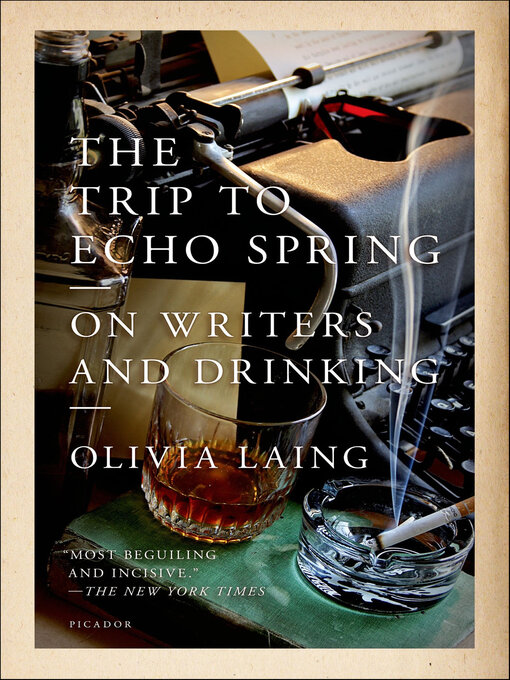A New York Times Notable Book of 2014
A TimeMagazine Notable Book of 2014
Olivia Laing's widely acclaimed account of how writers in the grip of alcoholism created some of the greatest works of American literature
In The Trip to Echo Spring, Olivia Laing examines the link between creativity and alcohol through the work and lives of six extraordinary men: F. Scott Fitzgerald, Ernest Hemingway, Tennessee Williams, John Berryman, John Cheever, and Raymond Carver.
All six of these writers were alcoholics, and the subject of drinking surfaces in some of their finest work, from Cat on a Hot Tin Roof to A Moveable Feast. Often, they did their drinking together: Hemingway and Fitzgerald ricocheting through the cafés of Paris in the 1920s; Carver and Cheever speeding to the liquor store in Iowa in the icy winter of 1973.
Olivia Laing grew up in an alcoholic family herself. One spring, wanting to make sense of this ferocious, entangling disease, she took a journey across America that plunged her into the heart of these overlapping lives. As she travels from Cheever's New York to Williams's New Orleans, and from Hemingway's Key West to Carver's Port Angeles, she pieces together a topographical map of alcoholism, from the horrors of addiction to the miraculous possibilities of recovery.
Beautiful, captivating, and original, The Trip to Echo Spring strips away the myth of the alcoholic writer to reveal the terrible price creativity can exert.
- Available now
- New eBook additions
- New kids additions
- New teen additions
- Most popular
- Try something different
- NYPL WNYC Get Lit Book Club
- Spotlight: Toni Morrison
- See all ebooks collections
- Available now
- New audiobook additions
- New kids additions
- New teen additions
- Most popular
- Try something different
- NYPL WNYC Get Lit Book Club
- Spotlight: Toni Morrison
- See all audiobooks collections




